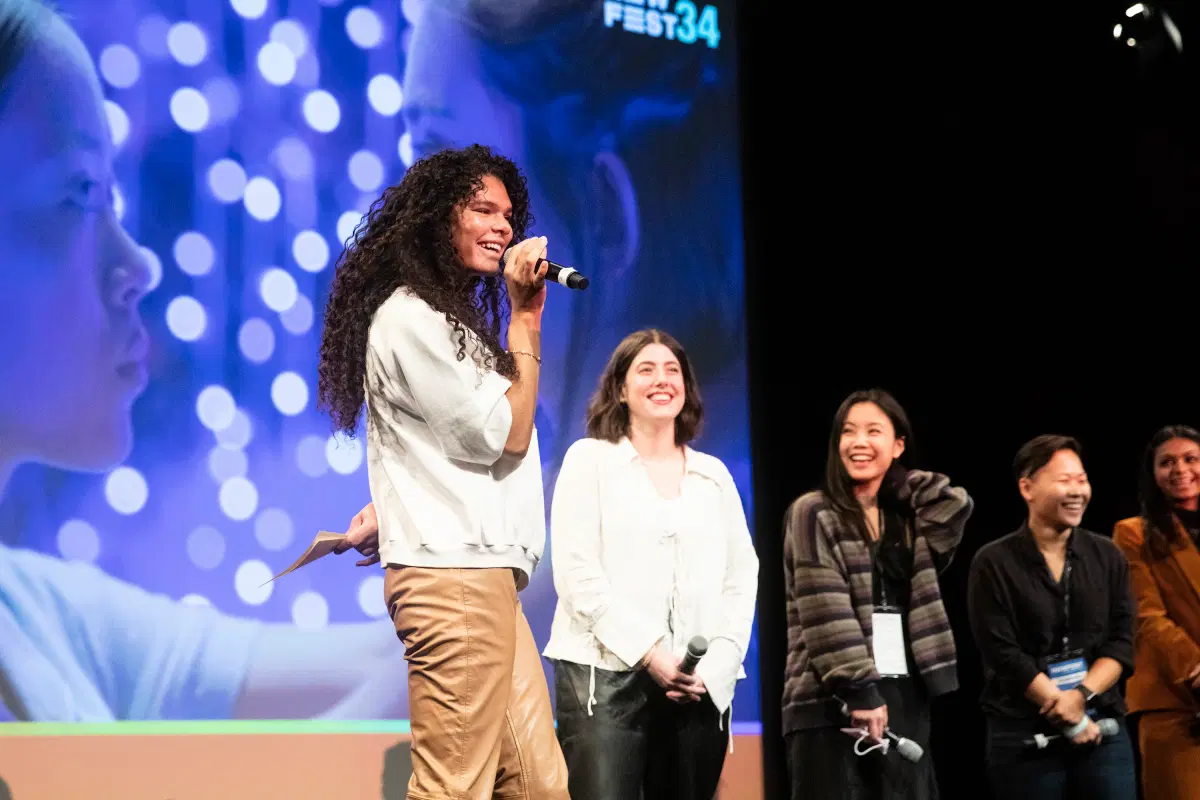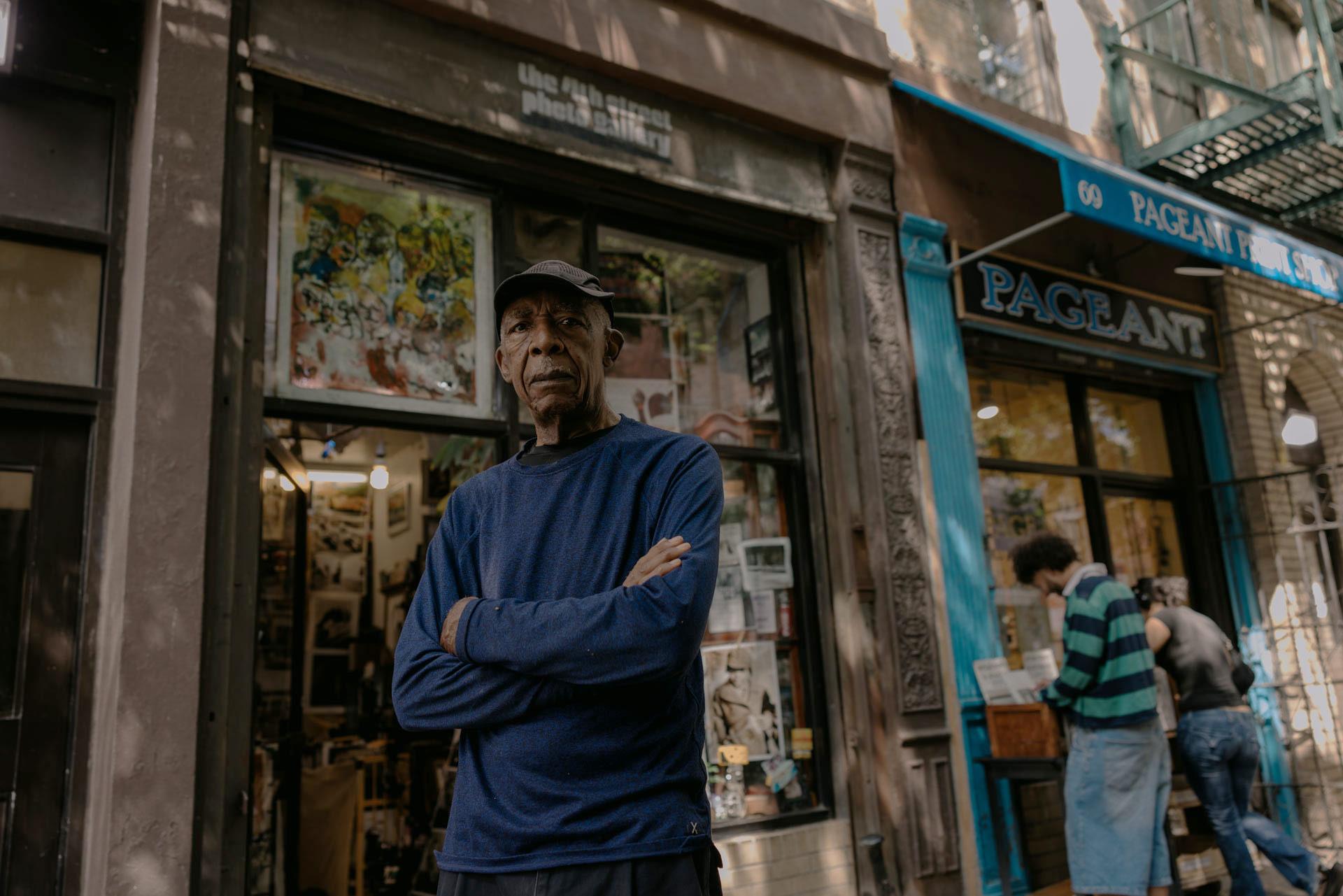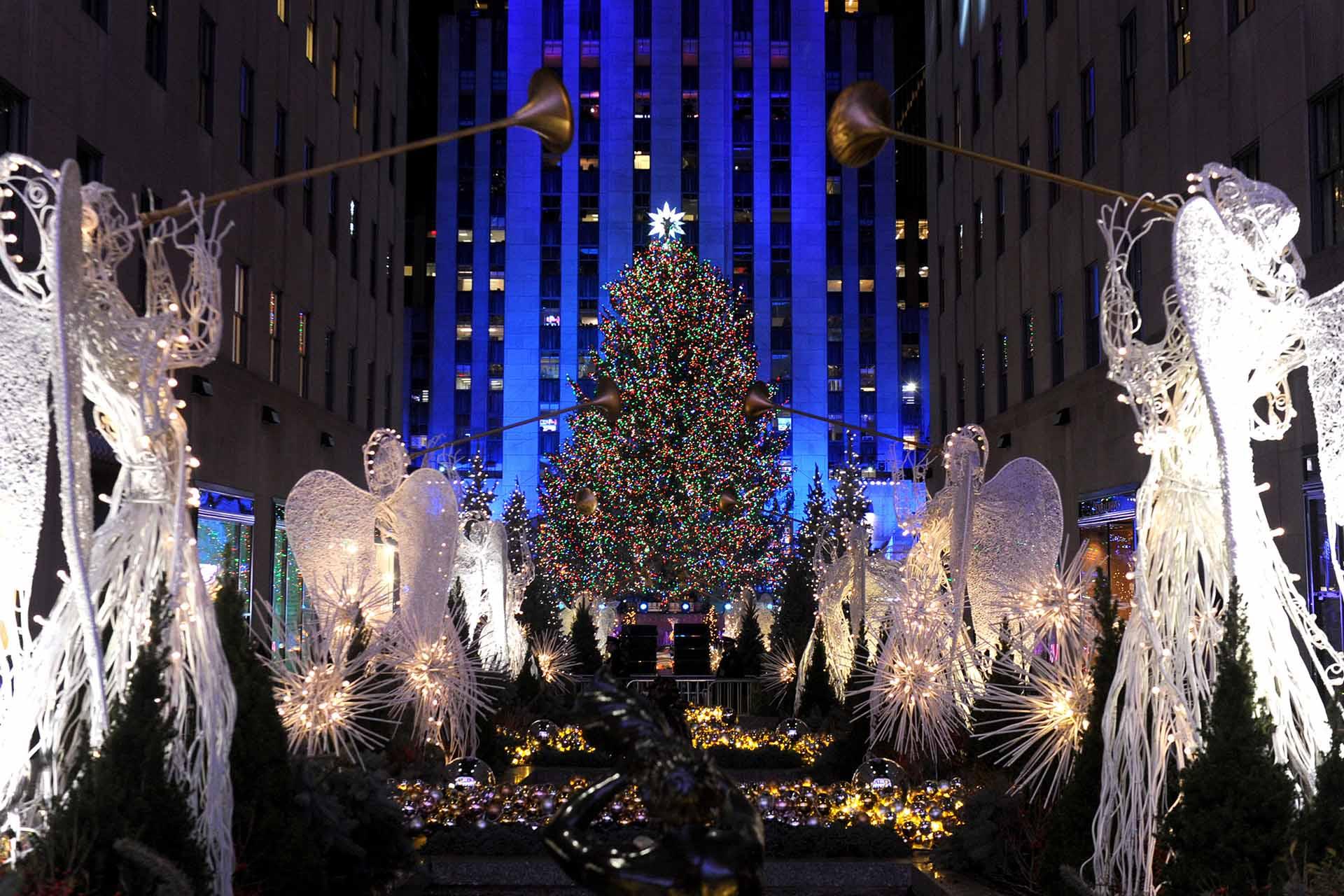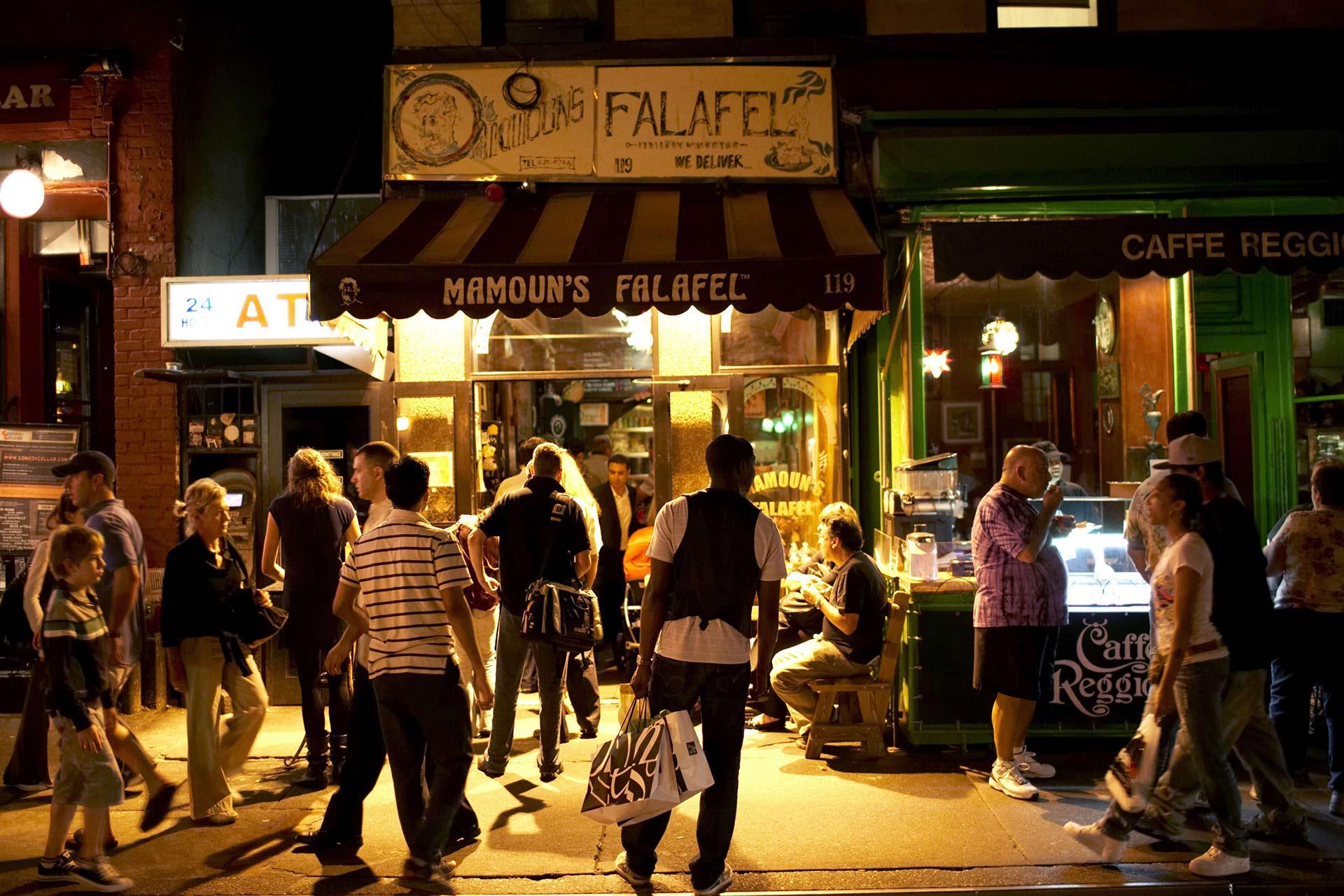Visibility and empowerment go hand in hand, as the founders of New York City’s most comprehensive LGBTQ+ film festival knew when they launched NewFest in 1988. The lack of governmental response during the AIDS epidemic and the momentum from 1987’s March on Washington for Lesbian and Gay Rights led Susan Horowitz and Peter Lowy to create a platform for queer stories and a safe space for the LGBTQ+ community.
Over 35 years, the festival has had its share of marquee moments, including screening the world theatrical premiere of Paris Is Burning, the NYC premiere of Hedwig & the Angry Inch and early screenings of Moonlight and Call Me By Your Name.
Today the organization continues its mission to amplify LGBTQ+ experiences through film. Beyond its annual October festival, NewFest works on programming year-round, holding a special Pride Month film fest, providing mentorship to new artists and addressing pipeline issues faced by queer Black filmmakers.
We spoke about the festival’s mission and ongoing relevance with executive director David Hatkoff during the sold-out run of shows at NewFest Pride.
How did you get involved in NewFest?
David Hatkoff: I had been aware of NewFest before I joined the organization. I worked previously in the nonprofit theater space and studied queer studies in graduate school; I never quite imagined that those two paths would intersect. But to be able to work in a place that provides a platform for LGBTQ+ stories and storytellers and creates a space for the community to come together in celebration of those stories is like a dream come true.
The organization started In response to the AIDS epidemic in the late ’80s. How has the mission evolved?
DH: We’ve been thinking about that a lot because this is our 35th anniversary. There’s a bit of déjà vu now that we are in a time when LGBTQ+ rights are in jeopardy, and in a lot of places legislation is being designed to silence and erase queer voices.
For certain members of the community, particularly trans members, it’s a fight simply to stay alive. Visibility and authentic representation can change and even save lives. We need to continue to provide the platform and host gatherings and say, without hesitation, that our lives and our community has value.

Courtesy, NewFest
How does film, specifically, provide a platform that supports and gives visibility to the LGBTQ+ community?
DH: Film creates the opportunity to be in someone else’s shoes and to see yourself reflected. There’s a different kind of experience that someone has watching a film than they do if they hear someone giving a lecture or a talk, a protest—all of which are absolutely essential—but there’s something emotionally and psychologically impactful about letting a story wash over you. I can’t state enough how important it is to be able to see yourself and how much that visibility matters.
In what ways are watching these films with other members of your community and having a shared experience—in a theater rather than from your couch—impactful?
DH: The energy in the room and the shared experiences—hearing the sniffles, the laughter, looking around and knowing that you’re in a safe space and that the LGBTQ+ experience is being prioritized here. Folks in any marginalized community become accustomed to carving out their own little spaces where they can. So to have a major event like the ones that we host is really powerful.
Can you talk about your mission to support and spotlight newer filmmakers ?
DH: At our festival in October, around 30 to 40 percent of the filmmakers of those 130 films that we show are first-time-filmmaker debuts. A couple initiatives that we run address some of those pipeline issues and career development opportunities.
We have a program called the New Voices Filmmaker Grant, which we do in partnership with Netflix. Four recipients get $25,000 each that they can put toward making a project or whatever they need to continue working as a filmmaker.
We also have the Black Filmmakers Initiative, designed to address the issues that Black LGBTQ+ filmmakers face in getting their work made and seen. We provide festival-related cost assistance so they can participate in the incredible networking opportunities at the festival. We also host gatherings that we call our Queer Media Mixers with filmmakers at all levels of their career as well as other LGBTQ+ industry folks.
Lastly, we’re partnered with the NYC Department of Education to host programs for high school students. At the festival, we show a series of short films that feature high school subjects as protagonists so that students can see people their age on screen.
You have to get your foot in the door somewhere, and we’re really excited to be able to offer that opportunity.

CG, Johnny Sibilly and Devin Way. Courtesy, NewFest
Why do you think New York needs a community space like NewFest, and conversely, why is NYC uniquely suited for the festival?
DH: New York is the most queer city in the world, and the LGBTQ+ community is not a monolith. There’s so much diversity in identity and experience. In a city that is obviously very culturally rich, there are actually very few dedicated spaces for specifically LGBTQ+ cultural programming.
Even for a city that has so many queer people and is a very welcoming and safe place for them, that space remains very important. I also think we can’t ignore the fact that even in New York, there are marginalized members of the queer community, and that people of color, especially trans people of color, are having a very different experience than white gay men living in Chelsea. What we really tried to do is create intentional programming and intentional social gathering spaces, so that all members of the community feel like they have a place to feel safe and celebrated.
Queer representation in cinema has become more mainstream. Why is a festival like NewFest still so relevant in 2023?
DH: It’s interesting to reflect on that question during Pride month; every company, every cultural organization, every retail store, has a rainbow flag in their window. And then on July 1, that visibility mysteriously diminishes. We are so glad that there are more queer stories being told. But the intentionality and the specificity of the experience that a place like NewFest offers, I believe, will always be necessary. We will probably end up showing somewhere around 200 films this year, and every single one centralizes a queer voice and is presented in a space designed for queer people. When we are placed at the center, it just changes something in your molecules.
Are there any new filmmakers that we should be keeping an eye on?
DH: We had a screening of Aristotle and Dante Discover the Secrets of the Universe, written and directed by a trans filmmaker named Aitch Alberto. She’s really talented.
We also have one of the recipients from the New Voices grant this year, a Black trans woman named Nyala Moon. She made a short film with the funds that she received that’s already won a couple of prizes at festivals around the country. I have no doubt that she’s going to be taking the industry by storm.
Elegance Bratton made his narrative feature film debut with The Inspection, which came out this past October and was released by A24. We streamed his debut short at NewFest about six years ago, so we get to see that trajectory from his short film to releasing a major feature starring Jeremy Pope and Gabrielle Union.
It must be amazing to see, knowing that the festival gave these filmmakers a platform.
DH: It really is. That’s how things change. Otherwise it remains kind of the same old boys’ club. We’re certainly not alone in this, but what any film festival does is provide that platform. Folks whom no one has heard of and may have very limited resources, people get a chance to see their films and then they get more opportunities. We feel like family members who had a very small part in their journeys but are proud to be a part of that journey nonetheless.
NewFest’s main event takes place October 12–24. More than 130 films will screen at theaters across NYC, including SVA Theatre, Nitehawk Prospect Park and the LGBT Community Center. Film submissions are open, and passes are available now at newfest.org.






